Coastal Passage Making
Post written by Marissa,This past weekend Shane and I had the distinct pleasure of spending 5 days on a Lagoon 400 cruising catamaran in Puget Sound. It was the two of us, two other students, and our instructor Capitan Margaret. We met over zoom calls twice before the actual class, and prepared a very detailed passage plan for the trip.
The original goal was to sail north, through Possession Sound up to Skagit Bay, and ultimately though Deception Pass. From there, we’d turn around and sail through the east end of the Straits of Juan de Fuca down to Port Townsend, then Port Ludlow on our way back to Shilshole Bay marina.
On Wednesday evening, we met the other students for the first time in person. We went through the safety checklists and departure checklists for the boat, and assembled a provisions list. Our instructor turned us loose to buy provisions, which we did at the local Fred Meyer.
On Thursday, after some last-minute repairs to the nav lights, we finally set off. Our first destination was Langley, on the inside of Whidbey Island. The instructor set up a rotation of duties for each day: skipper, navigator, engineer, and deckmate. On this day, I happened to be the skipper.
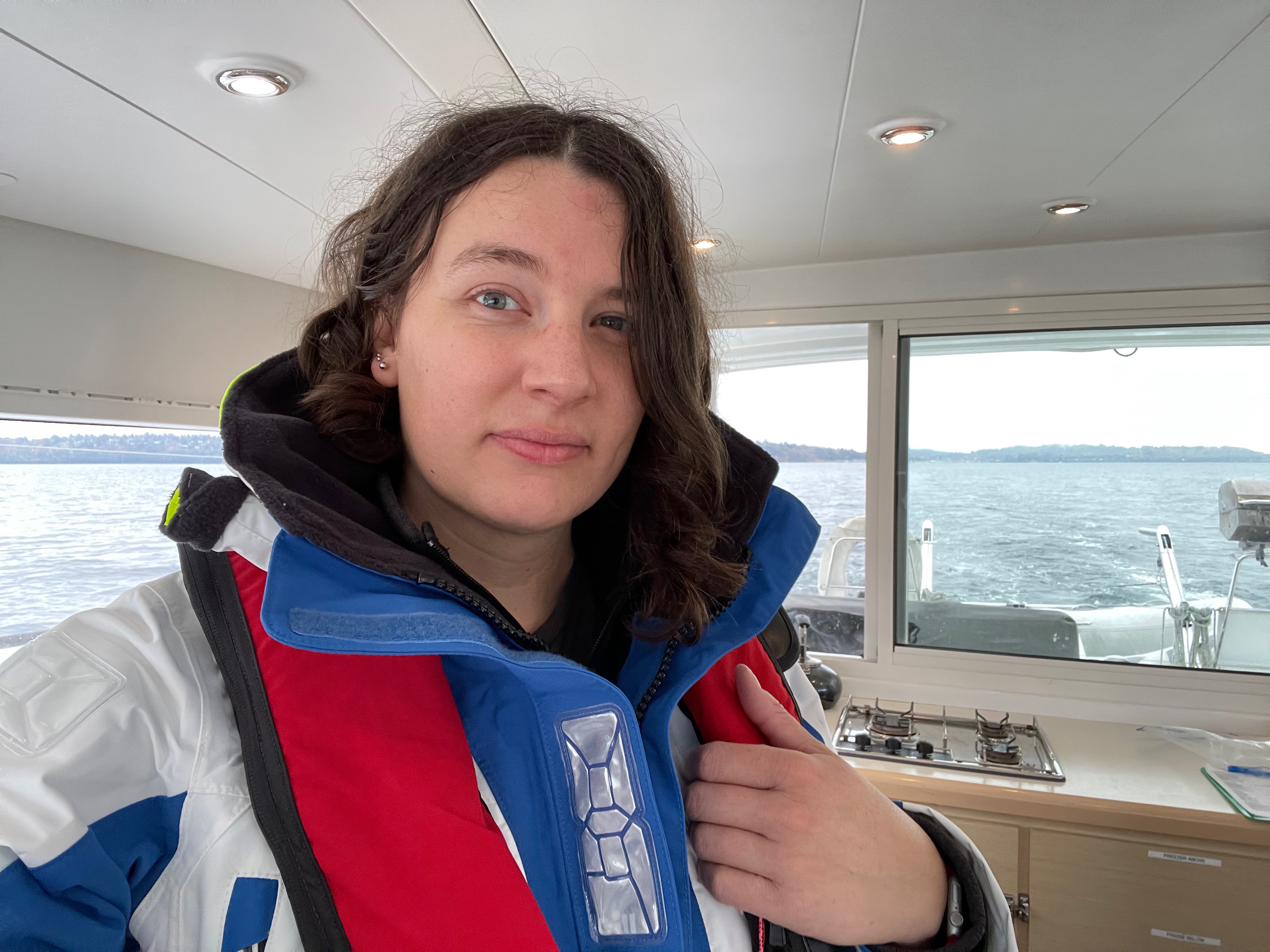
We had very light winds coming out of Shilshole, so we throttled up the engines and pointed the bow north. Capitan Margaret set up a watch schedule on a 1 hour rotation. We made soup and sandwiches for lunch while underway, and kept a close watch out for other boats (especially ferries). In between, the navigator and engineer had checklists to attend to, to keep the boat on track and make sure we weren’t in danger of breaking down. On this day, Shane was the navigator.
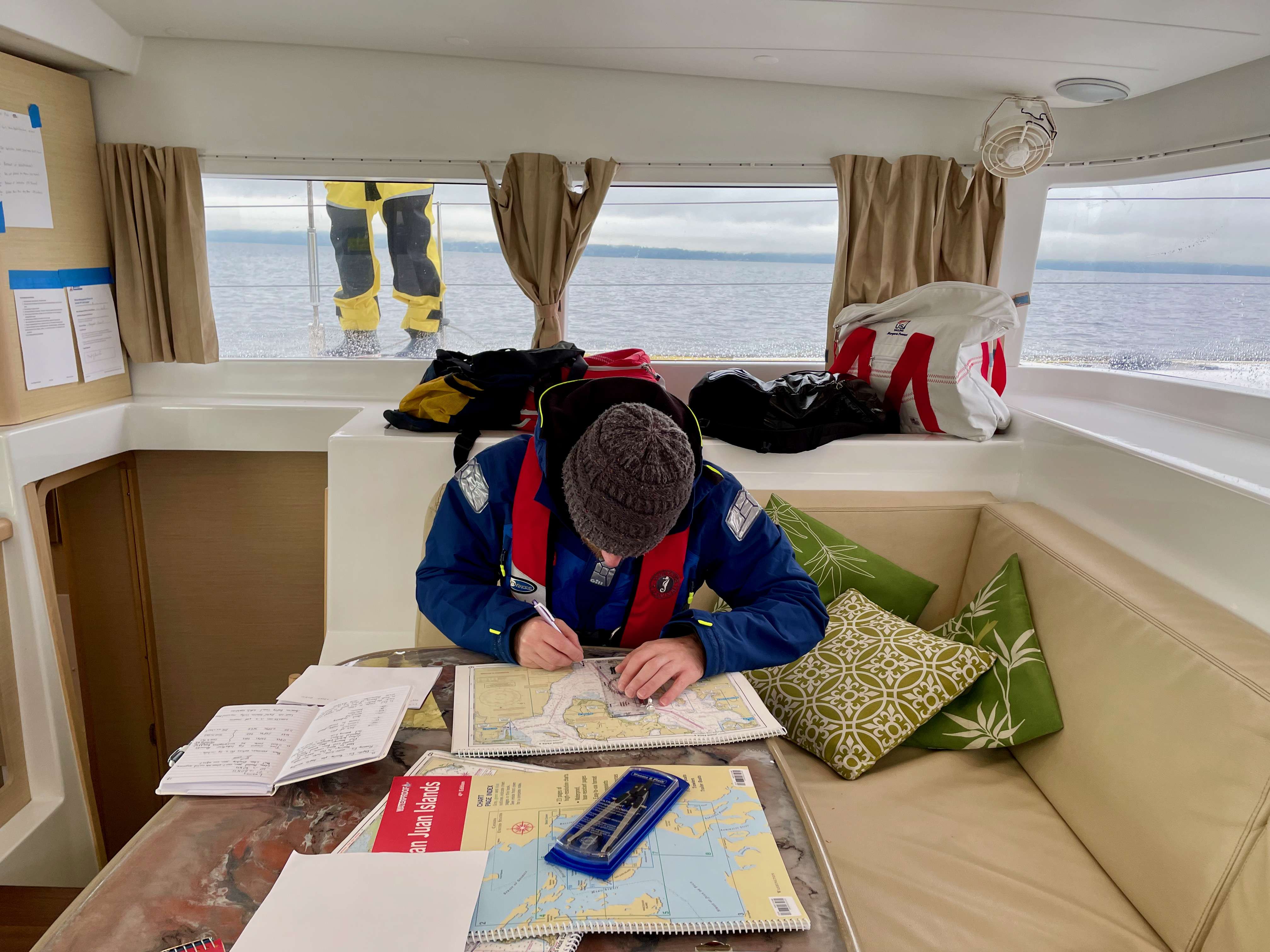
As we got closer to Langley, the weather started to turn ugly - the wind kicked up, as did the rain, and visibility worsened. At this point we were pretty happy to be wearing our foul-weather gear.
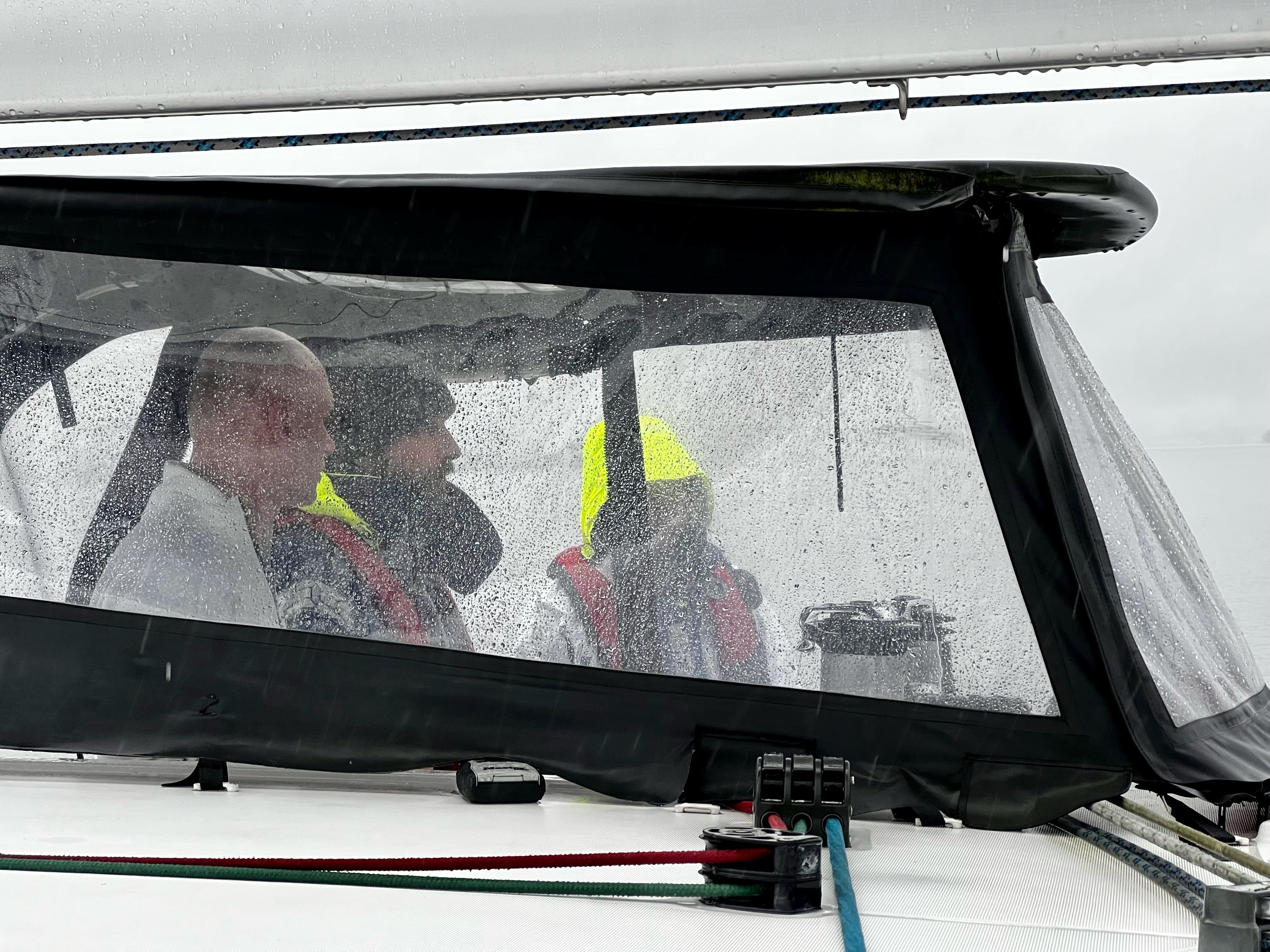
Approaching Langley, I radioed the marina to get our dock assignment: Delta-5 or Echo-1. We chose Echo-1. Capitan Margaret docked the boat and made it look easy.
Looking at the forecast, we realized that Sunday and Monday were going to bring gale-force winds from the South to the Sound. Our passage plan put us in Port Townsend on Sunday morning, meaning we’d be beating into the wind the entire way home. Given all that, we decided to turn back and head south instead.
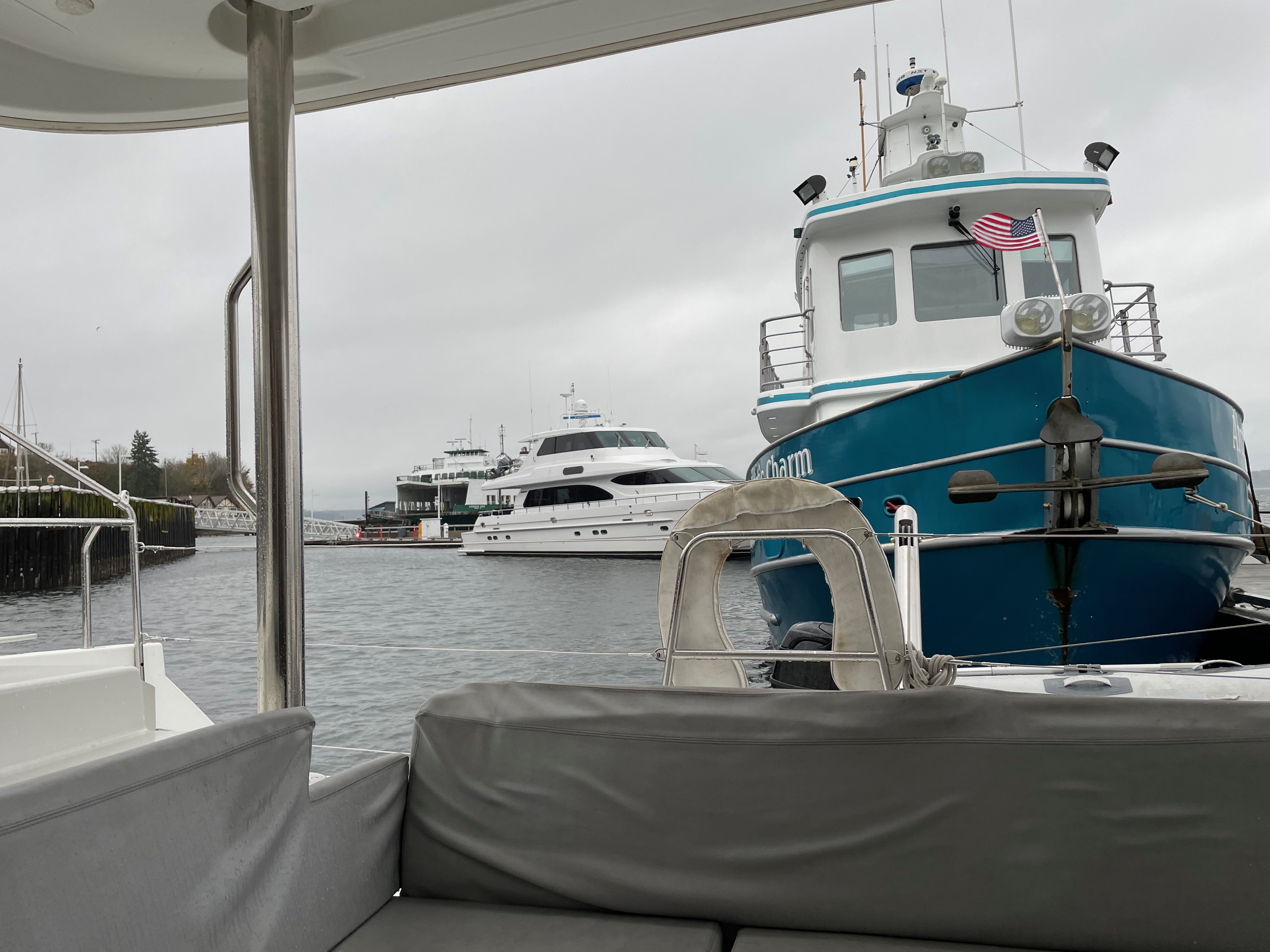
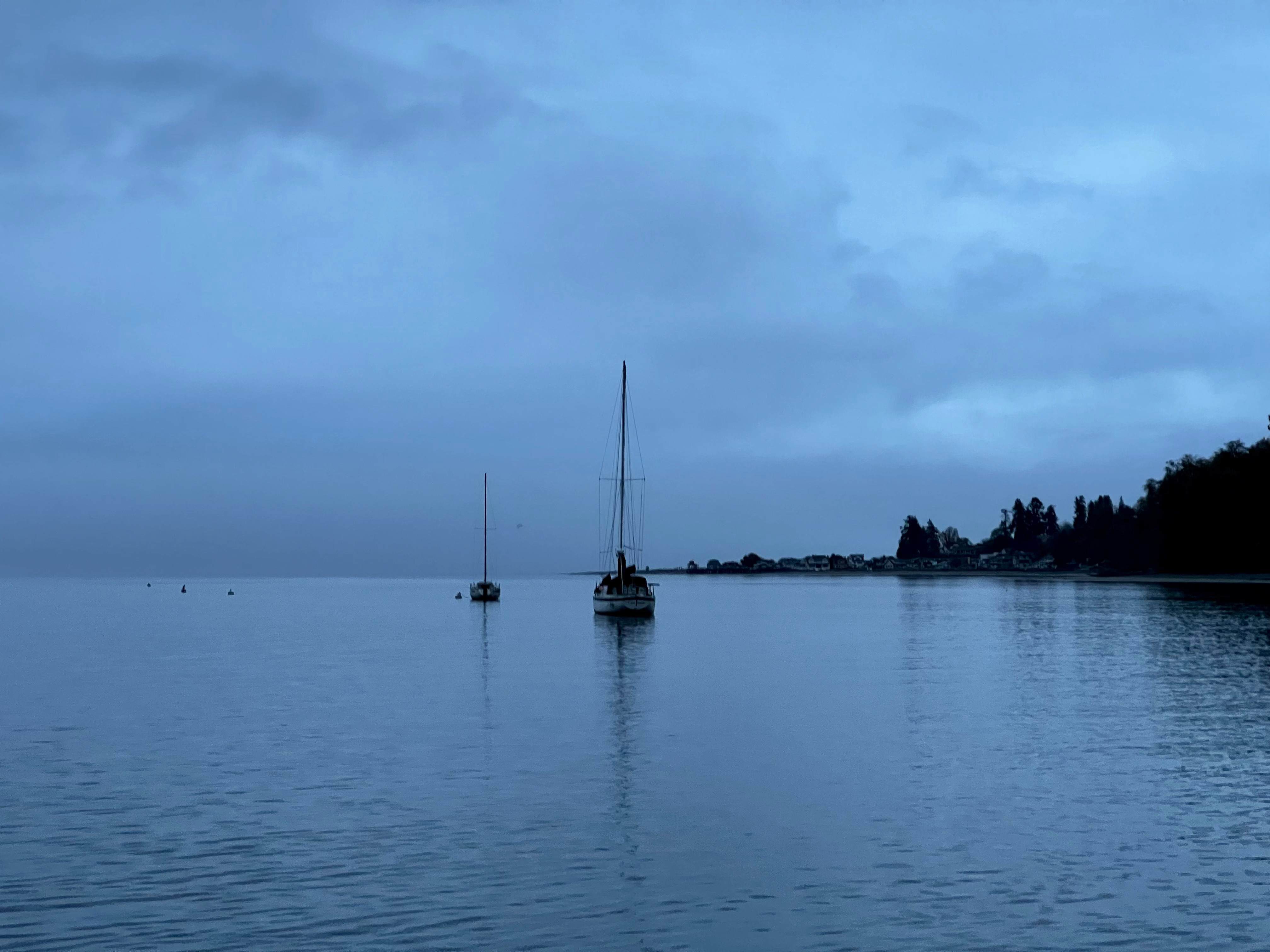
The next morning was magical - all the wind from the previous night was gone, replaced by a thick blanket of fog.


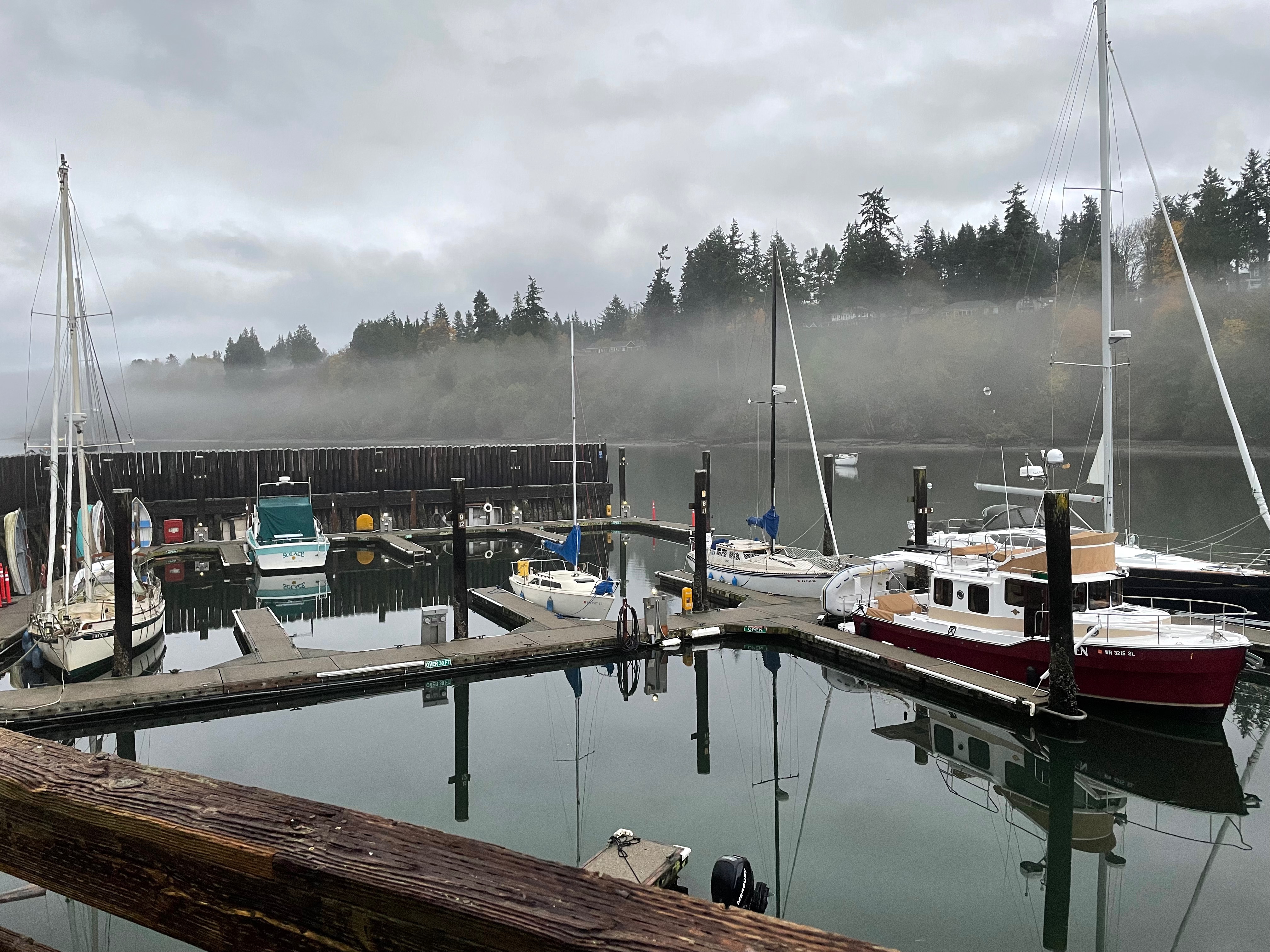
Leaving Langley, Capitan Margaret gave us the challenge of navigating with paper charts only, at least for the first hour or two, to experience what it would be like if your GPS went out on a coastal passage. We took 3-point fixes and running fixes, and plotted those on the charts.
Pretty soon, we found ourselves dodging ferries in the fog.
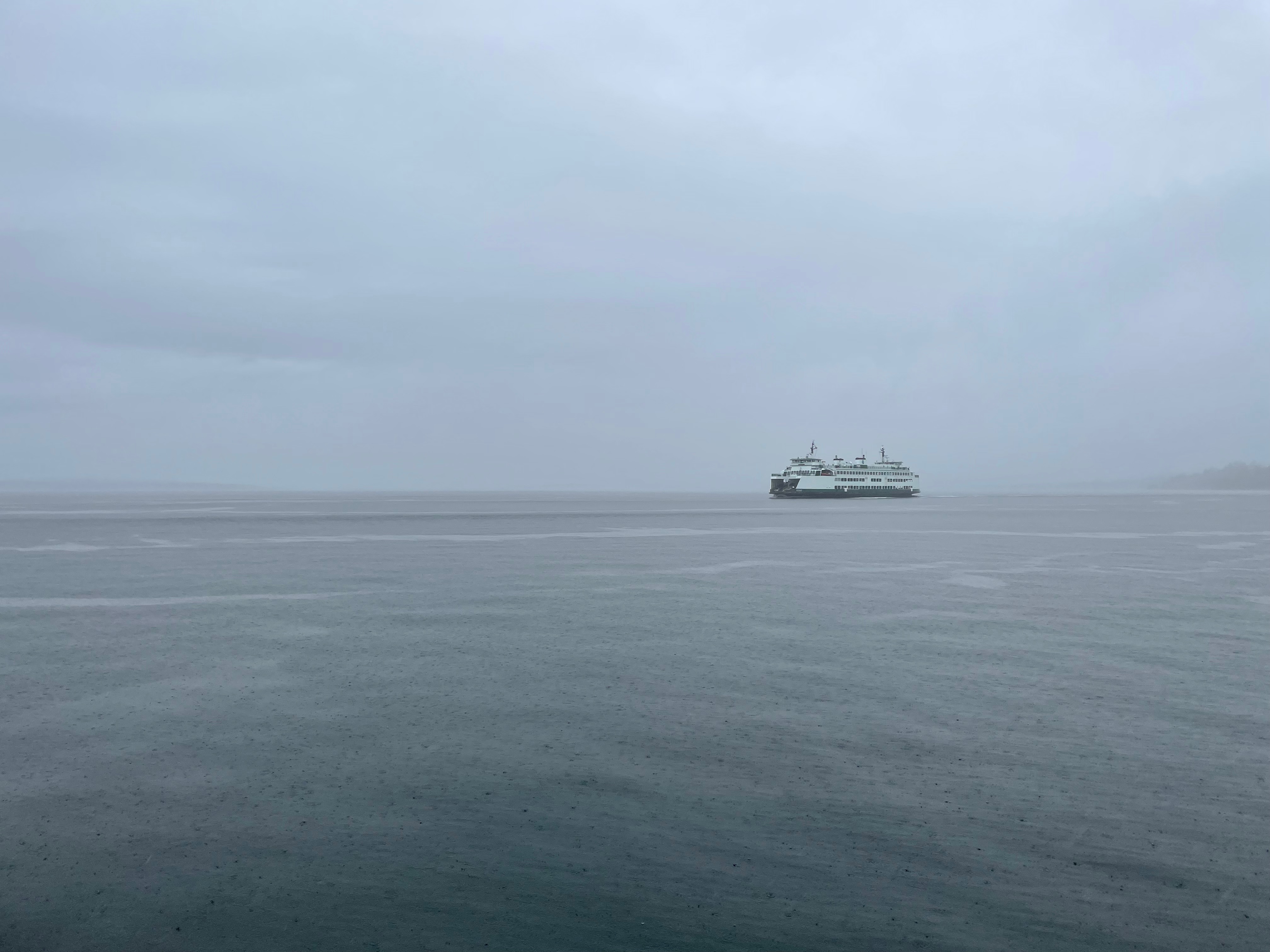
As we motored through the fog, it was clear that something was very off with our navigation instruments. When the helm steered on the magnetic bearings calculated by the navigator, it was clear the boat wasn’t going in the right direction. We ended up swinging ship and creating a deviation card for the boat. It turned out that, when going south, the compass was off by up to 40 degrees!
With the magnetic deviation finally taken into account, we were back on track, and found ourselves passing Seattle in late afternoon.

We pulled into the harbor on Bainbridge Island, and spent some time practising docking the catamaran. We turned in early, since the plan was to wake up at 4am the next morning, in order to experience night sailing.
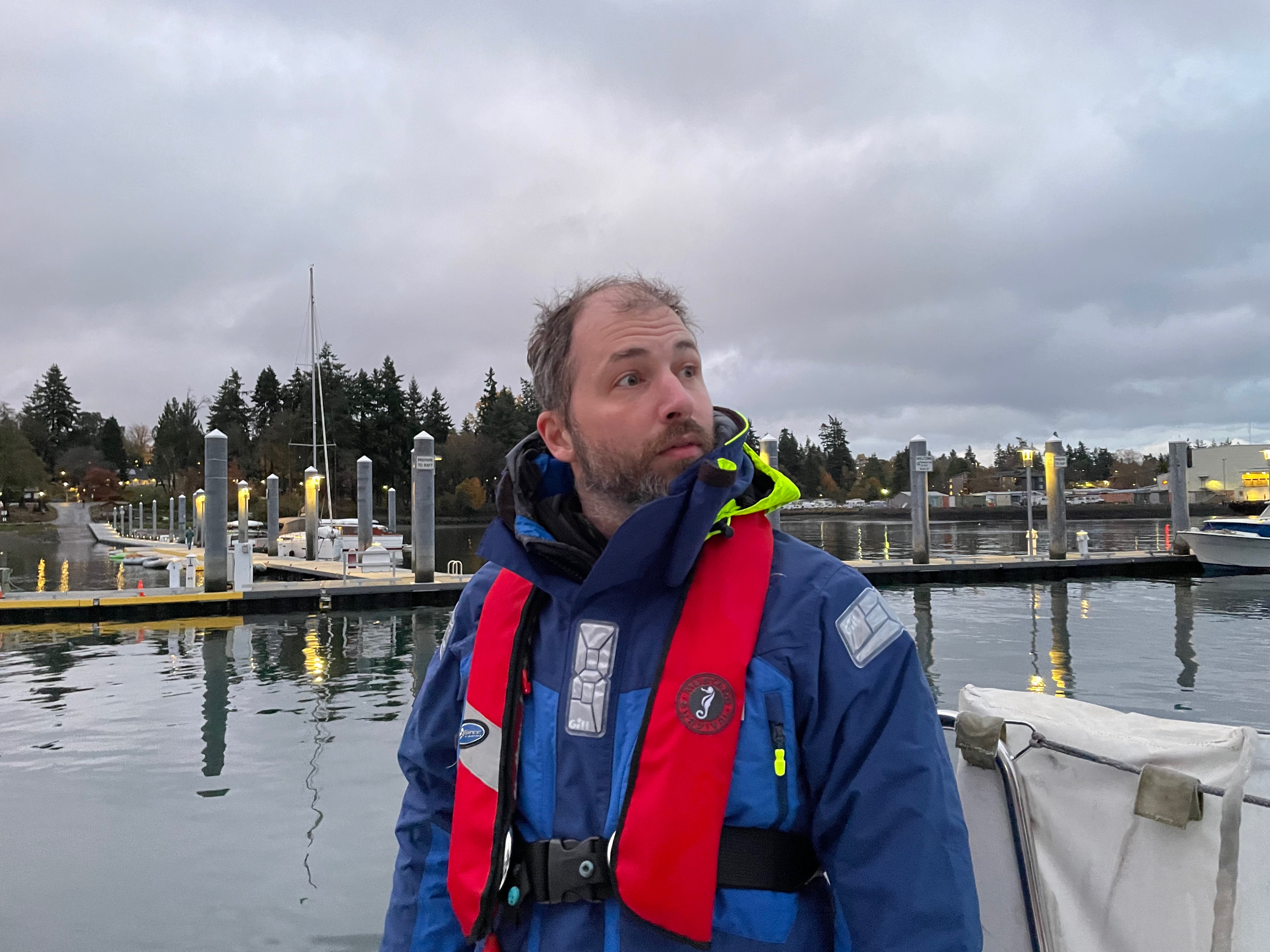
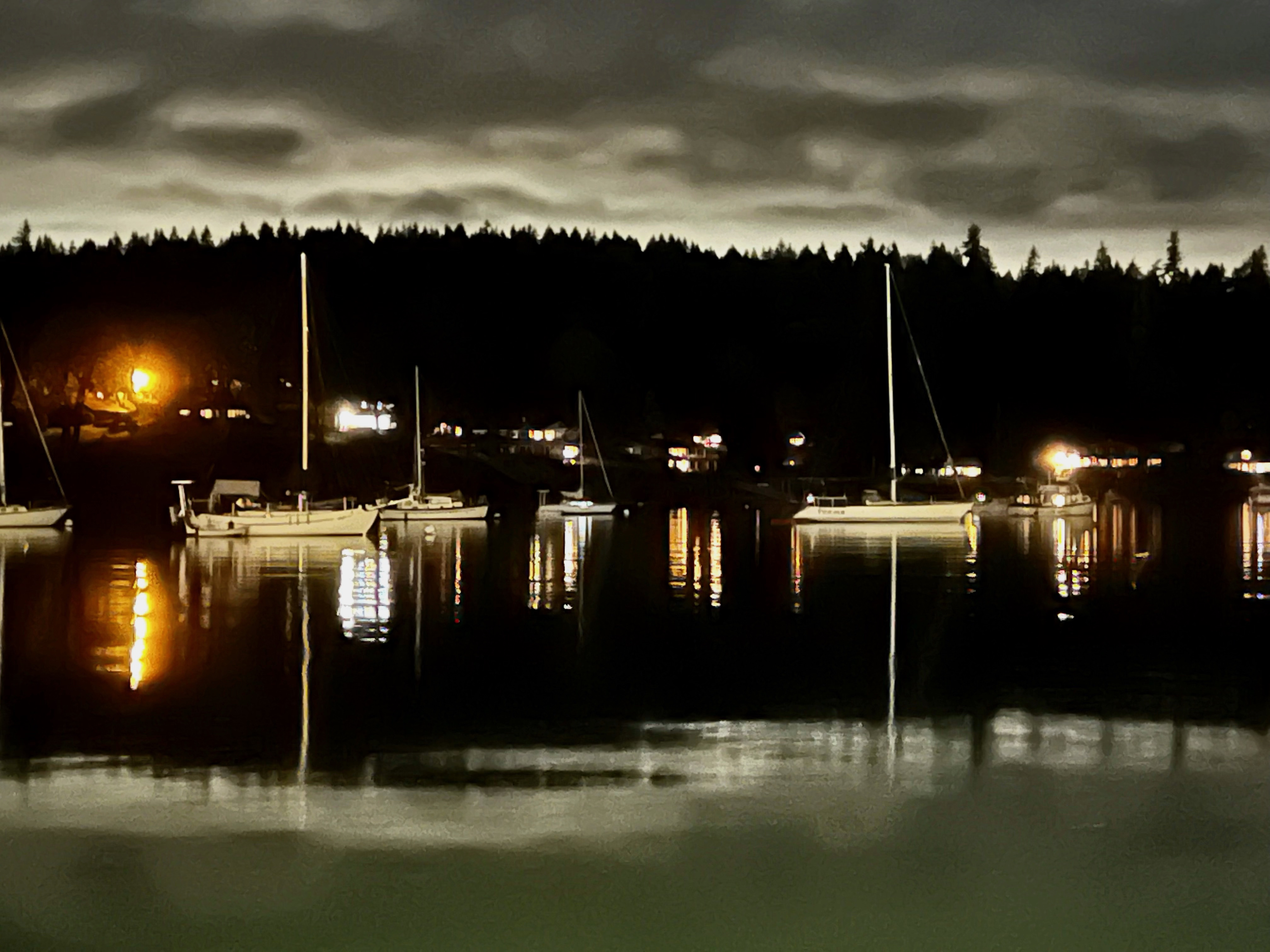
The next morning, we got up at 4am as promised. We were pulling away from the dock by 4:30, giving us a solid two hours of nighttime boating before the sun came up. We practised Man Overboard drills until the sun came up.
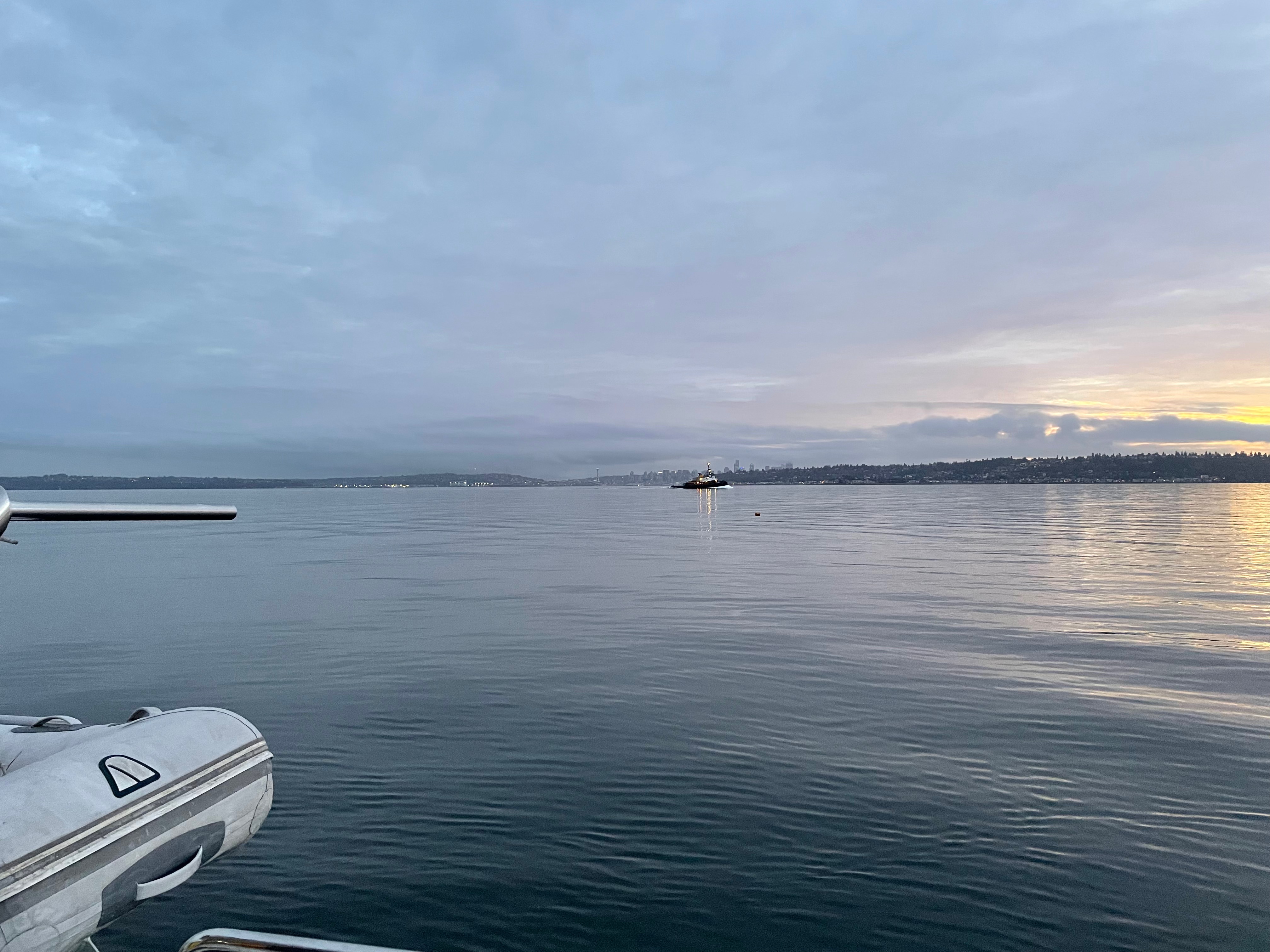
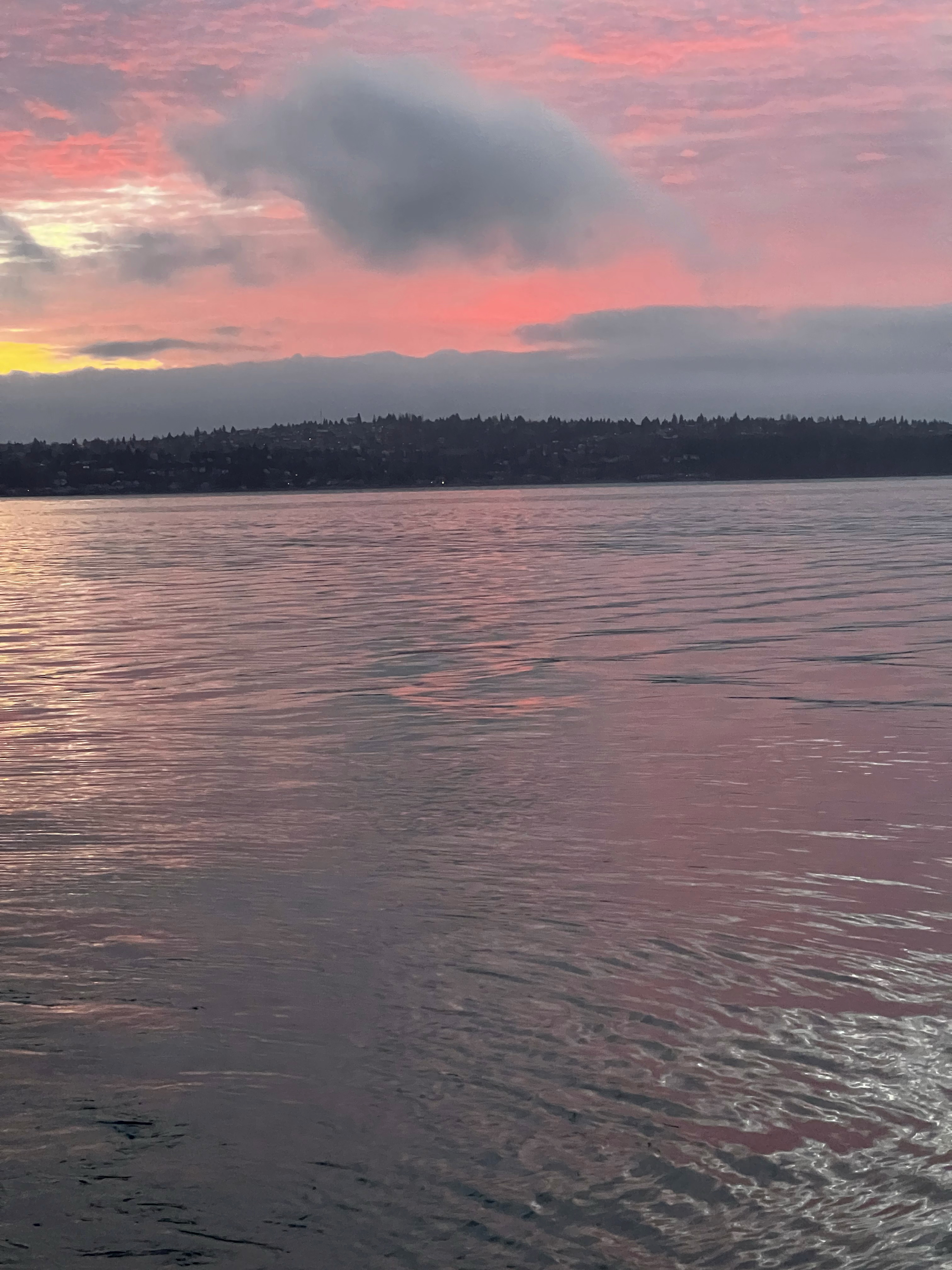
After the sun came up, we picked up a mooring ball, ate breakfast, talked about mooring and anchoring, and took a quick nap.

From here, we motored back up to Shilshole Bay, taking time to practise docking the catamaran again. Since we were back in Seattle, we even got to run home for a quick shower.
We spent the rest of the class hunkered down at the dock, while the winds gusted to 40+ knots and the rain fell sideways. We made tea and lunch, and spent the time going over many topics in the classroom. We got a whole list of books to read and areas to study to further prepare ourselves to go offshore.
We took time to look more closely at a marine diesel engine, and in a brief respite from the rain, learned first-hand how to pull someone back on board with a lifesling and a 3:1 MOB tackle.
On the last day, we took two US Sailing certification tests: one for Coastal Passage Making, and the other for a Catamaran endorsement. We passed both classes, and are now fully certified!
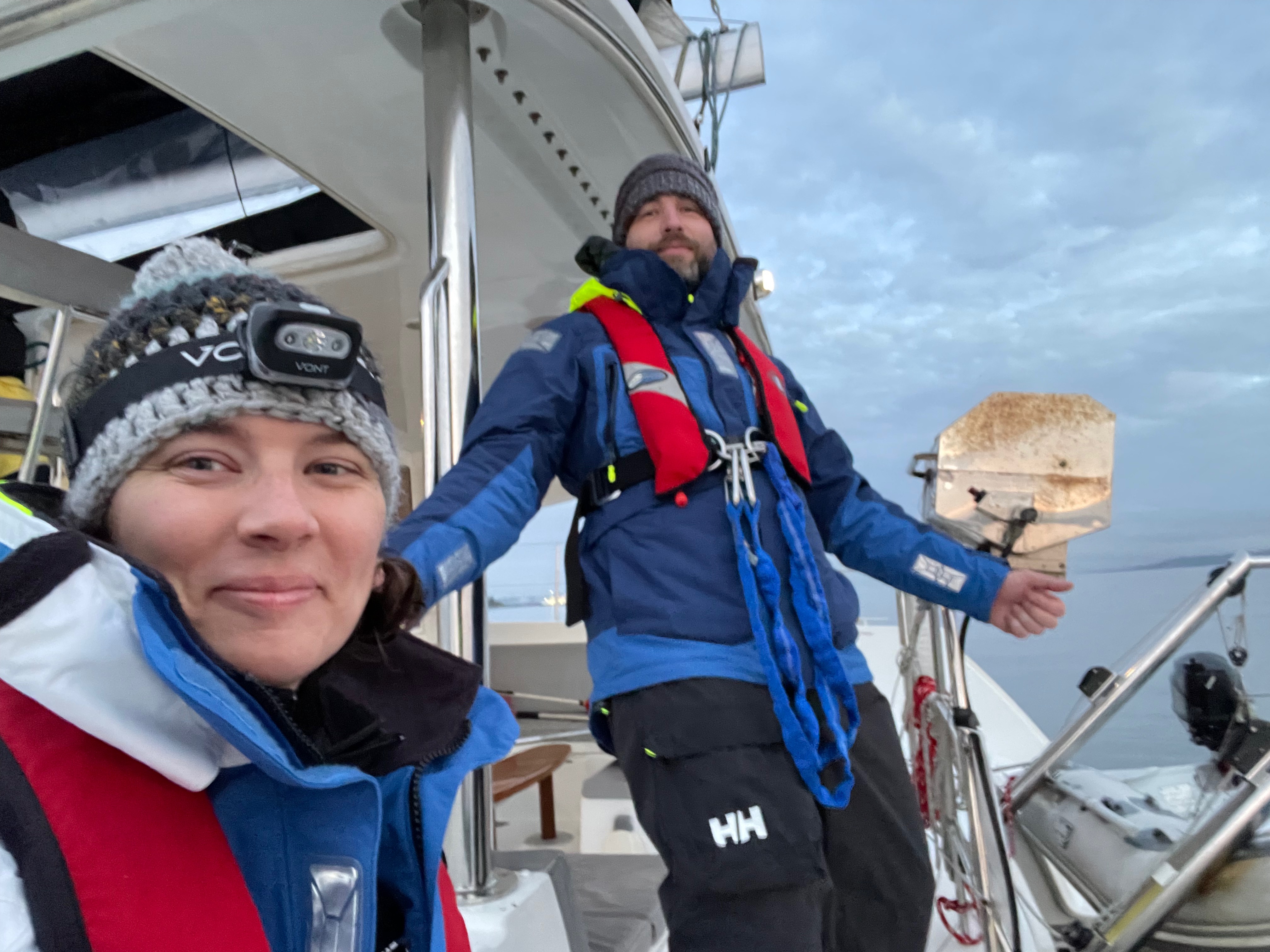
We have a long way to go, but this trip reinvigorated my sense of wonder and eagerness to explore the world by sea. But first, we have to get serious about our boat work.